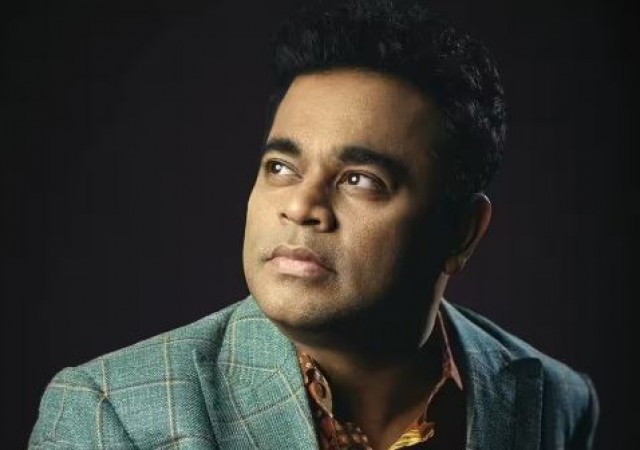
In the world of Indian cinema, music is a crucial component in defining the story, evoking emotions, and leaving a lasting impression on the audience. There have been many renowned music composers who have graced the industry over the years, but A.R. Rahman has always stood out. Rahman has long been regarded as a musical master, with a career spanning decades and an impressive list of compositions to his credit. A significant turning point in the illustrious career of the composer, however, was marked in the film "Raanjhanaa," which saw a historic and unorthodox change take place. The composer A.R. Rahman was given the highest credit in the credits for the first time in his career, followed by the director—a notable change from the standard order of film credits. The significance of this change in "Raanjhanaa" is examined in depth in this article, which is both original and ground-breaking.
Film credits represent the collaborative nature of filmmaking and are more than just a formality. The traditional practise in Indian cinema, as in many others, has always been to put the director's name at the top of the credits, followed by the names of the cast and crew. Although unquestionably important, the name of the music composer was typically mentioned later on the list. There haven't been many exceptions to this hierarchical structure for many years.
A.R. Rahman, dubbed the "Mozart of Madras," is credited with redefining Indian film music on a global scale. He has received widespread acclaim and numerous honours, including two Academy Awards, for his innovative fusion of modern sounds and foreign influences with Indian classical music. The impact Rahman has had on music is immeasurable, and his songs have the ability to transcend national boundaries and touch the hearts of listeners all over the world.
The 2013 film "Raanjhanaa," which was directed by Aanand L. Rai, is a touching and heartbreaking love story set against the backdrop of Varanasi, a sacred city. The movie, which features Dhanush, Sonam Kapoor, and Abhay Deol in major roles, examines themes of unrequited love, devotion, and sacrifice. Aside from its gripping plot, "Raanjhanaa" stood out due to a ground-breaking change in the film's credits.
A.R. Rahman was listed as the composer of "Raanjhanaa" right at the start of the opening credits, breaking with convention. Normally, the director's name would be listed first, but this was a significant deviation. It was decided to put Rahman's name before the director's as a way of symbolically recognising the crucial part that music plays in enhancing the emotional depth and narrative of the movie.
The choice to give A.R. Rahman the lead role in "Raanjhanaa" represented a change in how the industry viewed music composers. It transformed the composer's position from one of merely contributing to the soundtrack of a movie to one of a creative force essential to the story. This modification acknowledged how a movie's score can take on a life of its own and influence the audience's emotional response.
Even though A.R. Rahman's career had already been marked by many achievements, this particular credit placement in "Raanjhanaa" gave his legacy a deeper, more lasting dimension. It demonstrated his musical talent as well as the esteem and admiration he enjoyed among his peers. It demonstrated that his contributions to determining the impact of the movie were at least as important as the director's.
A milestone in Indian filmmaking was achieved with "Raanjhanaa." It pushed the boundaries of accepted conventions for film credits and paved the way for upcoming directors to prominently acknowledge and celebrate the contribution of music composers. Given that Indian storytelling and emotional resonance frequently incorporate music as a key component, this change was especially noteworthy.
It was important to acknowledge the collaborative nature of filmmaking as well as A.R. Rahman's talent when the film's credits were changed. It conveyed the idea that everyone involved in making a masterpiece of cinema—whether they are the director, writer, actor, or composer—plays a crucial part. In the film industry, this recognition fostered a spirit of cooperation and cooperation.
The placement of "Raanjhanaa" in the credits is still regarded as a turning point in Indian cinema history. A.R. Rahman, who was already a legend in the music industry, got the credit he deserved for being the composer who gave the story of the movie heart and soul. The movie defied convention and paved the way for a more equitable recognition of all contributors to the cinematic art form by prominently featuring his name in the opening credits.
With its soul-stirring music, "Raanjhanaa" not only won over audiences' hearts; it also forever changed the way films are credited in India. It honoured the brilliance of A.R. Rahman while serving as a testament to the storytelling power of music. It did this by marking a turning point in Indian cinema history and leaving behind a lasting legacy.
Pahlaj Nihalani's Claims About Govinda's Career and Bollywood Camps
Anushka Sharma's Cryptic Post Amid Second Pregnancy News Sparks Speculation
Koffee With Karan Season 8 Returns with Hilarious Self-Trolling by Karan Johar